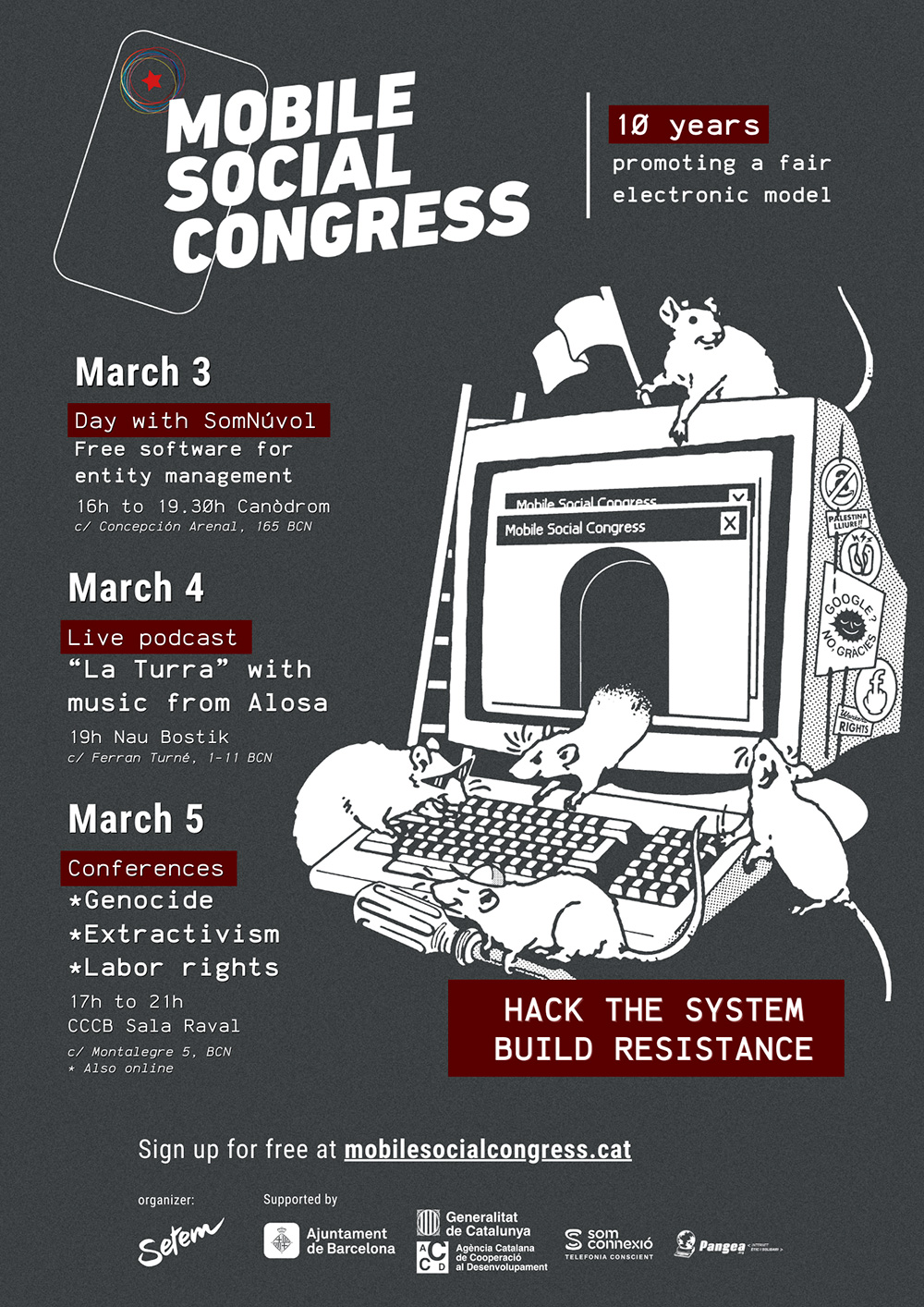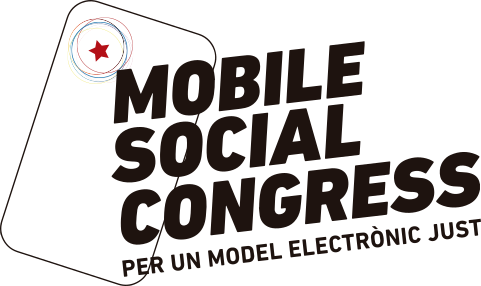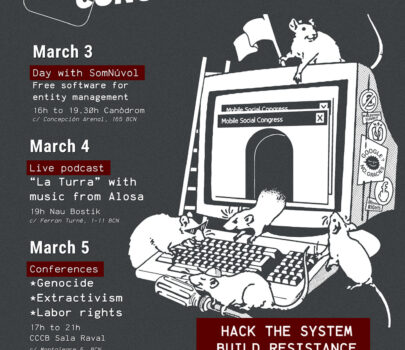Hack the system build resistance
The dominant discourse on digital technologies and artificial intelligence (AI) is based on a techno-utopian vision, which presents them as positive tools for progress and development. However, an increasing number of critical voices are warning of their social and environmental impacts. Digital technologies and AI are becoming marketable products of a globalised economy that externalises environmental and labour costs to the Global South and prioritises the financial gains of Big Tech companies. In this new era of techno- feudalism, where power and capital are in the hands of a few corporations, it is more necessary than ever to make these dynamics visible and to support struggles for labour, environmental and digital rights, as well as to promote technological sovereignty.
The Mobile Social Congress is a space for reflection and debate on the effects of the current electronic model and on the promotion of a more just and sustainable approach to technology. The 2025 edition, entitled “Hack the System, Build Resistance,” has been built collaboratively with different entities, organisations, activists, and advocates working on global justice issues around the impacts of digital technologies and the extractivism of resources linked to electronics. Alliances have also been forged with related events and spaces, such as SobTec (Congress of Technological Sovereignty) and Canòdrom (Athenaeum of Digital and Democratic Innovation), to offer a programme of activities in synergy, thereby strengthening alternative spaces against the logics promoted by the Mobile World Congress.
The main themes to be addressed in this edition are:
- Technology Companies, Genocide, Surveillance and Occupation. Despite the ongoing massacres and acts of genocide committed by Israel against the Palestinian people, and having been accused of apartheid by the International Court of Justice, the Mobile World Congress has an exclusive pavilion for Israeli technology companies, many of which have direct links to its military sector. Big Tech companies such as Google, Amazon, and Microsoft are also providing services to the Israeli government.
This is not an isolated case; tech companies profit from selling surveillance technologies to governments. - Impacts of Mineral Resource Extractivism. In a global context of increasing competition for resources, the demand for critical minerals— essential for manufacturing electronics and digital technologies—intensifies conflicts and environmental destruction linked to mining. This edition will focus on cases such as Madagascar, affected by rare earth mining, as well as cases where mining affects already fragile or war-torn territories. This is the case of the Democratic Republic of Congo, a country with mineral resources such as coltan and cobalt, both key components for the production of electronics. Rwanda facilitates the export of blood minerals, while the EU signs agreements with both countries to guarantee supplies. The impoverishment of African countries pushes thousands of people into illegal mining, risking their lives, as has happened in the mines of Stilfontein, South Africa.
- Barriers to Trade Unionism. The challenges for women workers in the electronics industry who seek to organise and improve their working conditions will be discussed, especially in producer countries where assembly lines are mostly made up of women who lack guarantees for the right to organise.
- Imperfect AI. Although generative AI has been presented as a revolutionary tool, this technology is not neutral but instead reproduces discriminatory biases, perpetuates inequalities and consumes large amounts of energy, generating a significant environmental impact.
The programme activities will take different formats—from panel discussions and presentations to a live podcast.
We encourage you to participate in the activities of the Mobile Social Congress, to learn, reflect and collectively drive change.
For more information, don’t hesitate to write to info@electronicajusta.net



